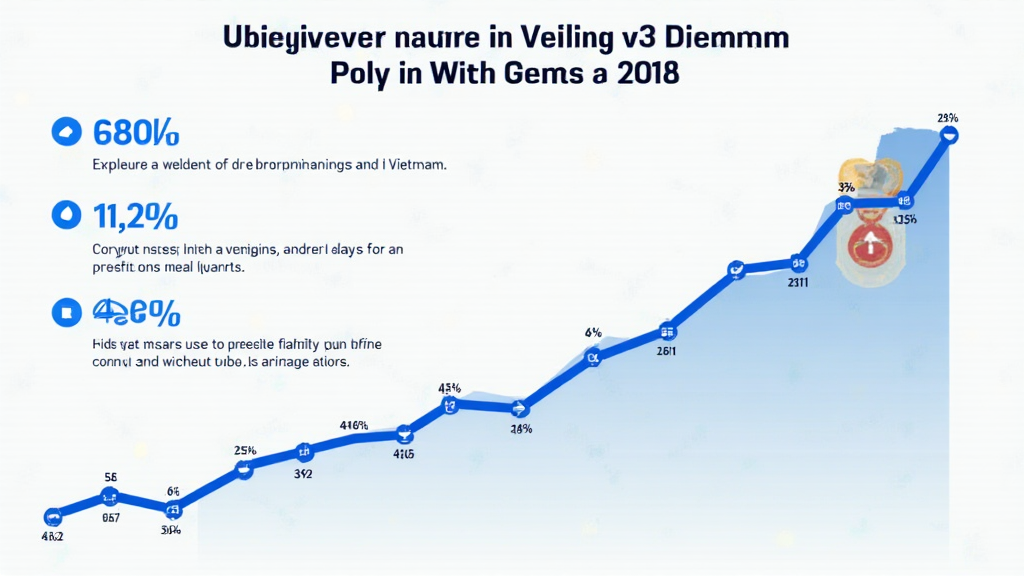Introduction
In recent years, the world of cryptocurrency has exploded in popularity, particularly in regions like Vietnam. According to Statista, Vietnam has seen a remarkable growth of over 30% in crypto users year-over-year. With over 5 million individuals engaging with cryptocurrencies, the question of capital gains becomes increasingly pertinent.
With the complexities surrounding capital gains and the tax implications for crypto investors in Vietnam, readers are left wondering: what are the implications for your digital assets? In this guide, we aim to clarify the definitions and nuances of crypto capital gains, provide localized insights, and equip you with the necessary knowledge to navigate this ever-evolving landscape.
Understanding Crypto Capital Gains
So, what exactly are crypto capital gains? At its core, capital gains refer to the profit realized when you sell an asset for more than its purchase price. In the case of cryptocurrencies, when you sell your digital assets, the difference between what you paid and what you received is categorized as a capital gain.

- Long-term gains: These occur when you hold the asset for more than a year.
- Short-term gains: Gains from assets held for less than a year are typically taxed at a higher ordinary income rate.
Navigating the Vietnamese Crypto Tax Landscape
In Vietnam, tax regulation concerning cryptocurrencies is still developing. The Ministry of Finance has acknowledged crypto’s role, proposing frameworks that include taxing capital gains. Here are some considerations:
- The current tax rate for capital gains in Vietnam is around 20%.
- Transactions over a certain amount may require detailed reporting for tax purposes.
As the guidelines become clearer, understanding these tax policies is vital for investors looking to safeguard their profits while remaining compliant with local regulations.
Real-World Examples of Crypto Capital Gains in Vietnam
Let’s illustrate the importance of understanding capital gains with some real-world scenarios. Imagine you bought 1 Bitcoin (BTC) for $40,000, and a year later, you sold it for $70,000.
- Your capital gain would be $30,000.
- If you held onto the BTC for more than a year, you would be taxed at the long-term capital gains rate of 20%. This means you owe the government $6,000.
The Evolution of Crypto Regulations in Vietnam
The Vietnamese government is gradually increasing its oversight of cryptocurrency. As mentioned previously, Vietnam’s Ministry of Finance has introduced various regulatory measures. However, there is still confusion regarding how cryptocurrencies fit into existing tax structures. Regulators have proposed measures such as:
- The creation of specific digital asset regulations.
- Defining digital currencies as commodities, thus subject to capital gains taxes.
These steps indicate a recognition of the sector’s growth and the need for formal regulation.
Impact of HIBT on Crypto Capital Gains in Vietnam
The HIBT (How to Invest in Blockchain Technology) initiative is significant for Vietnamese investors. By adopting how blockchain works and its implications for investments, HIBT has positioned itself as a leader in education, thereby potentially affecting the capital gains landscape:
- Encouraging investor participation by providing them with the necessary tools and knowledge.
- Helping professionals audit crypto assets more effectively.
This empowerment of investors may lead to greater overall compliance with tax regulations, ultimately benefiting the Vietnamese crypto market.
Conclusion: The Path Forward for Crypto Investors in Vietnam
As the Vietnamese crypto landscape continues to evolve, understanding capital gains becomes paramount for investors. With organizations like HIBT leading the charge in educating investors, more individuals are becoming aware of both the opportunities and responsibilities that come with cryptocurrency trading.
Essentially, staying informed and compliant with local regulations while navigating HIBT’s educational resources can significantly ease the concerns surrounding crypto capital gains.
To take a proactive approach, ensure that you continually educate yourself on these evolving guidelines. And remember, consider consulting local financial advisors for the best strategies and insights.
For more information, visit HIBT and check out mycryptodictionary for extensive definitions of crypto-related terms, including comprehensive guides on local and international taxes concerning cryptocurrencies.
Meet the Expert
Authored by Dr. Nguyen Tran, a financial consultant with over 15 publications in the fields of blockchain technology and digital asset management. Dr. Tran has played a pivotal role in the auditing of several well-known crypto projects in Southeast Asia.





